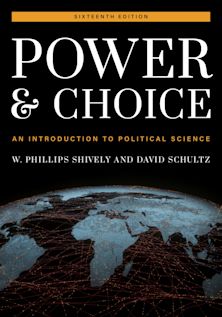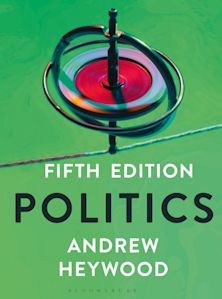The Political Effects of Entertainment Media
How Fictional Worlds Affect Real World Political Perspectives
The Political Effects of Entertainment Media
How Fictional Worlds Affect Real World Political Perspectives
Description
Entertainment media are rife with material that touches on the political. The stories with which we entertain ourselves often show us, for better or worse, that everything can be solved by the rise of an individual hero, and that the “best way” to deal with a bad guy with a gun is a good guy with a gun. Our stories portray individuals along the lines of gender, racial, and ethnic stereotypes; offer us villains that are one-dimensional characters driven by evil; and show us politicians who are almost always corrupt, self-serving, and/or incompetent. They offer up models for how to deal with oppressive authority and they typically portray worlds that are just, where those who do the right thing come out on top. Entire entertainment genres, with their shared story telling conventions and common plot devices, provide lessons and perspectives that are relevant to how the public sees political issues. The stories that entertain us show us all these things and more, but to what effect? Does the pervasive politically relevant content that can be found not just in political entertainment shows, like House of Cards, but also in entertainment like Game of Thrones, that, on the surface, has nothing to do with modern politics, affect people’s perspectives on the political world? That is the central question of this volume. This book discusses the type of content in entertainment media that has the best chance of influencing political beliefs, draws from the work of scholars in a number of disciplines in order to forge a theory explaining how and when entertainment media will affect political perspectives, and presents a series of empirical studies using experiments and surveys that demonstrate the effect of politically relevant content in shows such as Game of Thrones, House of Cards, The Daily Show and The Colbert Report, in genres such science fiction, and through pervasive villain and leader character types.
Table of Contents
Chapter 1: The Potentially Influential Political Content of Entertainment Media
Chapter 2: The How and When of Entertainment Media Effects
Chapter 3: Game of Thrones and the Belief in a Just World
Chapter 4: House of Cards Effects
Chapter 5: Sci Fi
Chapter 6: Villains of Science Fiction, Fantasy and Superhero Genres
Chapter 7: News Parody Shows, Cynicism and Skepticism
Chapter 8: Fictional Leaders and Support for Female Candidates
Conclusion
Appendix 1: Questions for Study 1
Appendix 2: Unique Questions Used in Study 2 (GoT Group)
Appendix 3: Questions Used in Study 3 (The Hobbit Group Version)
Appendix 4: Questions used in House of Cards Study 3
Appendix 5: Questions Used in Science Fiction Experiment and Survey
Appendix 6: Villain Survey
Appendix 7: TDS and TCR Studies
Appendix 8: Questionnaire for Leadership and Gender Experiment
Bibliography
Product details
| Published | 08 Jul 2020 |
|---|---|
| Format | Ebook (Epub & Mobi) |
| Edition | 1st |
| Extent | 248 |
| ISBN | 9781498573993 |
| Imprint | Lexington Books |
| Illustrations | 20 tables; 28 graphs; 2 charts; |
| Publisher | Bloomsbury Publishing |
Reviews

ONLINE RESOURCES
Bloomsbury Collections
This book is available on Bloomsbury Collections where your library has access.


































